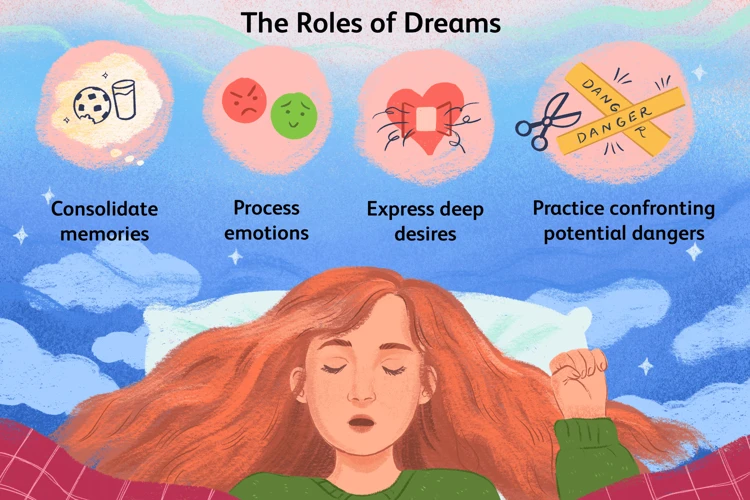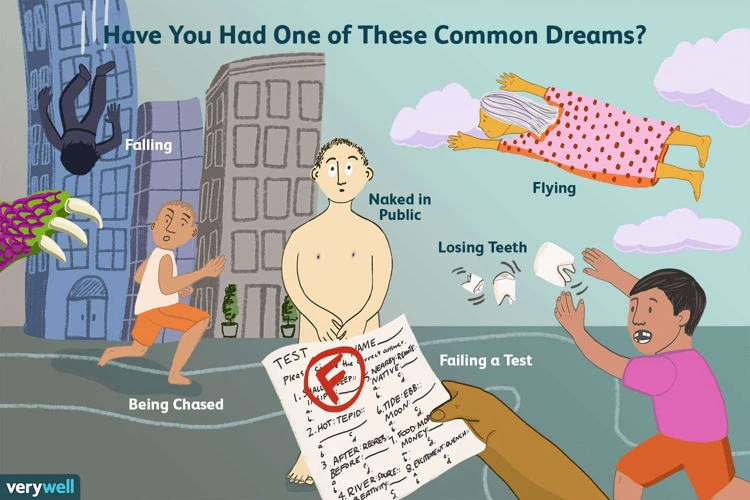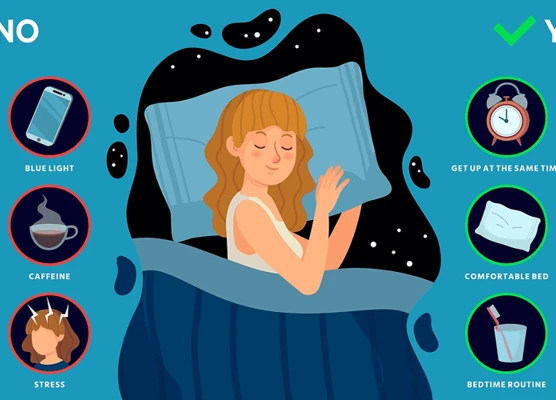Many of us have experienced those moments of complete and utter bewilderment when we wake up to find ourselves engaged in conversations we have no memory of or discover remnants of a late-night feast that we have no recollection of devouring. These puzzling occurrences are often attributed to sleep talking and sleep eating, two intriguing phenomena that have been linked to various sleep disorders. In this article, we will delve into the realm of sleep disorders and explore the fascinating connection between these disorders and sleep talking as well as sleep eating. We will also examine the impact of sleep disorders on daily life and discuss the available treatment options for managing these peculiar behaviors. So, sit back, relax, and join us on this intriguing journey into the realm of sleep disorders and their role in sleep talking and sleep eating.
Understanding Sleep Disorders

Sleep disorders can be perplexing and disruptive to our overall well-being. These conditions encompass a range of disturbances that impact our ability to achieve restful sleep. Understanding sleep disorders is essential in unraveling the complex nature of sleep-related issues. Some common types of sleep disorders include insomnia, sleep apnea, narcolepsy, restless leg syndrome, and parasomnias, such as sleep talking and sleep eating. Each disorder presents unique symptoms and challenges, but they all share the common characteristic of interfering with our sleep patterns and quality of rest. By delving into the intricacies of these disorders, we can begin to comprehend their underlying causes and explore effective treatment options to mitigate their effects. For example, research has shown a connection between sleep disorders and chronic fatigue, emphasizing the importance of addressing and managing sleep disturbances to promote overall wellness. To learn more about the link between sleep disorders and chronic fatigue, check out our article on the relationship between sleep disorders and chronic fatigue.
Common Types of Sleep Disorders
When it comes to sleep disorders, there is a wide range of conditions that can disrupt our sleep patterns and affect our overall well-being. Let’s dive into the common types of sleep disorders that individuals may encounter.
1. Insomnia: Insomnia is characterized by the inability to fall asleep or stay asleep, leading to persistent sleep deprivation. It can be caused by various factors including stress, anxiety, depression, medications, or certain medical conditions.
2. Sleep Apnea: Sleep apnea is a condition in which breathing repeatedly stops and starts during sleep. It is often accompanied by loud snoring and can lead to fragmented sleep and daytime fatigue. Obstructive sleep apnea is the most common form, caused by a blockage in the airway.
3. Narcolepsy: Narcolepsy is a neurological disorder that affects the brain’s ability to regulate sleep-wake cycles. Individuals with narcolepsy may experience excessive daytime sleepiness, sudden and uncontrollable episodes of falling asleep, and cataplexy (sudden loss of muscle tone).
4. Restless Leg Syndrome (RLS): RLS is characterized by an irresistible urge to move the legs, often accompanied by uncomfortable sensations such as itching, tingling, or aching. Symptoms typically worsen during periods of rest or in the evening, leading to difficulty falling asleep.
5. Parasomnias: Parasomnias include a variety of sleep disorders, such as sleepwalking, sleep talking, sleep eating, and nightmares. These disorders often involve abnormal behaviors or experiences during sleep, leading to disrupted sleep patterns and potential safety concerns. To learn more about the causes, risks, and prevention strategies for sleepwalking, check out our article on sleepwalking causes, risks, and prevention strategies.
Understanding these common types of sleep disorders is crucial in recognizing and addressing any potential issues with our sleep patterns. Each disorder has its own set of symptoms, causes, and treatment options. It is important to consult with a healthcare professional if you suspect you may be experiencing a sleep disorder. Unraveling narcolepsy symptoms and treatment can provide you with more in-depth information about this specific sleep disorder.
Exploring Sleep Talking

Sleep talking is a fascinating phenomenon that occurs during our slumber, leaving us puzzled and sometimes entertained by the conversations that unfold in the nocturnal realm. What is sleep talking, you may wonder? Well, it is exactly as it sounds – the act of speaking while asleep. It can range from murmuring and gibberish to coherent and meaningful sentences. Sleep talking is more common than one might think, with up to 50% of adults experiencing it at some point in their lives. The causes of sleep talking are not fully understood, but they are believed to be linked to a combination of factors, including genetics, sleep deprivation, stress, and underlying sleep disorders. It is often harmless and does not require treatment unless it becomes disruptive or starts interfering with the quality of sleep. To delve deeper into the causes and potential risks of sleep talking, check out our article on sleepwalking: causes, risks, and prevention strategies.
What is Sleep Talking?
Sleep talking, also known as somniloquy, is a fascinating phenomenon that occurs during sleep. It refers to the act of talking while asleep, often in a mumbled or incoherent manner. This enigmatic behavior is more common in children, but it can occur in individuals of all ages. Sleep talking can range from simple utterances and gibberish to full-fledged conversations. The content of sleep talking can vary widely, from recounting dreams to random phrases, and it can occur during any stage of sleep.
While the exact cause of sleep talking remains unclear, several factors may contribute to its occurrence. These include stress, sleep deprivation, fever, certain medications, alcohol consumption, and underlying sleep disorders. Sleep talking is believed to be a result of the brain’s failure to maintain complete muscle atonia during sleep, leading to the activation of the vocal cords and oral muscles. It is important to note that sleep talking is generally harmless and does not require treatment unless it causes significant disruption to the sleep of the individual or their partner.
To better understand the intricacies of sleep talking, let’s take a look at some key points:
- Frequency: Sleep talking can happen sporadically or on a regular basis, with some individuals experiencing it multiple times a week.
- Content: The content of sleep talking can range from nonsensical phrases to coherent conversations, often reflecting the dream content or the individual’s daily experiences.
- Associated Behaviors: Sleep talking may be accompanied by other sleep-related behaviors such as sleepwalking, night terrors, or sleep-related eating disorders.
- Impact: In most cases, sleep talking does not disturb the sleep of the individual. However, it can disrupt the sleep of the bed partner, leading to potential conflicts or sleep disturbances for both individuals.
Sleep talking is a fascinating aspect of sleep behavior that can shed light on the mysteries of the sleeping mind. While it may be entertaining or puzzling for some, understanding its causes and effects can contribute to a deeper comprehension of the complex nature of sleep and its potential connection to other sleep disorders.
Causes of Sleep Talking
Sleep talking, a fascinating phenomenon that occurs during sleep, can be attributed to various causes. Causes of sleep talking can be both physiological and psychological in nature, and they often vary from person to person. Physiological factors that contribute to sleep talking include sleep deprivation, alcohol consumption before bedtime, fever, certain medications, and sleep disorders such as sleep apnea and insomnia. Additionally, stress, anxiety, and emotional turmoil can also act as triggers for sleep talking. In some cases, genetic predispositions may play a role, as sleep talking tends to run in families. It is important to note that sleep talking is not considered a disorder on its own but rather a symptom of an underlying condition. It often occurs during the non-REM (rapid eye movement) stages of sleep, particularly during the transition between deep sleep and lighter stages of sleep. The causes of sleep talking are still not fully understood, and further research is needed to gain a comprehensive understanding of this intriguing sleep behavior.
Link to Sleep Disorders
Sleep talking has been found to have a strong link to sleep disorders. While occasional sleep talking is considered normal and harmless, frequent and disruptive episodes may indicate an underlying sleep disturbance. Conditions such as sleep apnea, insomnia, and REM sleep behavior disorder are commonly associated with sleep talking. Sleep apnea, characterized by interrupted breathing during sleep, can lead to fragmented sleep and increase the likelihood of sleep talking episodes. Insomnia, on the other hand, can cause sleep deprivation, which may trigger sleep talking as the brain tries to compensate for the lack of restorative sleep. Additionally, individuals with REM sleep behavior disorder, where the usual paralysis during REM sleep is absent, may act out their dreams through sleep talking. It’s important to note that sleep talking itself is not necessarily harmful, but addressing the underlying sleep disorder can improve overall sleep quality and reduce the frequency of sleep talking episodes. In the next section, we will dive deeper into the phenomenon of sleep eating and its connection to sleep disorders.
Examining Sleep Eating

When it comes to unusual sleep behaviors, sleep eating is one that leaves many puzzled and intrigued. Examining sleep eating allows us to delve into the realm of nocturnal eating disorders and the compelling connection they have with sleep disorders. Sleep eating, also known as nocturnal eating syndrome, involves consuming food during periods of partial or complete sleep. Individuals affected by this disorder often have little to no memory of these episodes, adding to the mystery surrounding their nocturnal food adventures. The causes of sleep eating are not fully understood, but they are believed to be linked to a combination of genetic, psychological, and environmental factors. Sleep disorders, such as sleepwalking and sleep-related eating disorders, have been found to be related to sleep eating. By uncovering the underlying causes and exploring effective treatment options for sleep disorders, we can begin to address and manage sleep eating behaviors. To learn more about the causes, risks, and prevention strategies of sleepwalking, a common sleep disorder associated with sleep eating, check out our article on sleepwalking.
What is Sleep Eating?
Sleep eating, also known as nocturnal eating syndrome or sleep-related eating disorder (SRED), is a parasomnia characterized by the consumption of food during sleep. Individuals who experience sleep eating typically have little to no recollection of their nighttime eating episodes the next morning. This behavior involves eating large amounts of food, often high in calories, sugar, and carbohydrates. Sleep eating episodes can occur multiple times throughout the night, resulting in significant weight gain and other health complications over time. It is important to note that sleep eating differs from normal nighttime snacking or having a small meal before bed. Instead, it involves patterns of compulsive eating that disrupt sleep and overall well-being. If you or someone you know is experiencing sleep eating episodes, it is crucial to seek medical attention to address this disorder and explore strategies to manage its effects. Understanding the nature of sleep eating is the first step in finding appropriate treatment options and improving sleep quality and overall health.
Causes of Sleep Eating
Sleep eating, also known as nocturnal eating syndrome, is a peculiar phenomenon that can have various underlying causes. The causes of sleep eating can be multifaceted and differ from person to person. One potential cause is disruptions in the sleep-wake cycle, which can lead to abnormal eating behaviors during sleep. This disruption may be influenced by factors such as shift work, jet lag, or irregular sleep patterns. Another possible cause is psychological factors, including stress, anxiety, or certain psychiatric disorders. These conditions can trigger episodes of sleep eating as a subconscious coping mechanism. Additionally, some medications, such as certain antidepressants or sleep aids, have been known to contribute to sleep eating behaviors. Certain medical conditions, such as sleep-related eating disorder (SRED) or night eating syndrome (NES), can be underlying causes of sleep eating. These disorders are characterized by a combination of disordered eating patterns, altered sleep patterns, and psychological factors that contribute to nocturnal eating episodes. It is important to note that the specific causes and triggers of sleep eating can vary from person to person, and a comprehensive evaluation by a healthcare professional is crucial in order to accurately determine the underlying causes and develop an appropriate treatment plan.
Relation to Sleep Disorders
A fascinating aspect of sleep eating is its correlation with various sleep disorders. Let’s dive deeper into the relation between sleep eating and sleep disorders. Sleep-related eating disorder (SRED) is a specific condition where individuals engage in excessive eating during the night, often without any recollection of these events upon awakening. This disorder is commonly associated with other sleep disorders, such as sleepwalking, insomnia, restless leg syndrome, and even sleep apnea. In fact, studies have shown that more than half of individuals diagnosed with SRED also have sleepwalking episodes. This suggests a potential overlap in the mechanisms underlying these conditions.
The exact cause of the connection between sleep disorders and sleep eating is still being researched, but several theories have emerged. One theory proposes that disruptions in the neurotransmitters responsible for regulating sleep and appetite may contribute to both sleep disorders and sleep eating. Another hypothesis suggests that changes in the brain regions responsible for controlling impulse control and hunger may play a role. Additionally, there is evidence to suggest that certain medications used to treat sleep disorders, such as sedatives or sleep aids, can increase the likelihood of sleep eating episodes.
It is worth noting that sleep disorders can significantly impact an individual’s sleep architecture and overall sleep quality. The fragmented sleep patterns caused by sleep disorders can lead to an increased risk of sleep eating incidents. Sleep deprivation, a common consequence of sleep disorders, can also disrupt the hormonal balance related to hunger and satiety, potentially exacerbating nighttime eating behaviors.
Managing sleep disorders is crucial in addressing the underlying causes of sleep eating. Treating the primary sleep disorder, whether it be sleepwalking or insomnia, can help reduce the occurrence of sleep eating episodes. Additionally, implementing proper sleep hygiene practices, such as sticking to a regular sleep schedule, creating a calming bedtime routine, and avoiding stimulating substances like caffeine and alcohol, can promote better sleep and reduce the likelihood of sleep-related eating episodes.
The relation between sleep eating and sleep disorders is evident through the frequent co-occurrence of sleep-related eating disorder with other sleep disorders. Understanding this connection is essential in developing effective treatment strategies and interventions to manage both sleep disorders and sleep eating behaviors. By addressing the root causes of sleep disorders and promoting healthy sleep habits, individuals can alleviate the disruptive effects of sleep eating and foster better sleep quality overall.
Impact of Sleep Disorders on Daily Life

Sleep disorders can have a profound impact on our daily lives, affecting various aspects of our physical and mental well-being. The consequences of these disorders extend beyond the nighttime hours and seep into our waking hours, influencing our productivity, relationships, mood, and overall quality of life.
1. Impaired Cognitive Function: One of the significant impacts of sleep disorders is impaired cognitive function. When we don’t get enough restorative sleep, our ability to concentrate, focus, and make decisions can be severely compromised. This can lead to decreased productivity at work or school, difficulty retaining information, and an increased risk of accidents or errors.
2. Emotional Instability: Sleep disorders can also wreak havoc on our emotional well-being. Chronic sleep deprivation can contribute to irritability, mood swings, and heightened emotional reactivity. It may also exacerbate symptoms of depression and anxiety, making it more challenging to manage our emotional health effectively.
3. Strained Relationships: A lack of quality sleep can strain relationships with family members, friends, and romantic partners. Sleep disturbances can lead to frequent disruptions during the night, such as loud snoring, sleep talking, or sleep eating. These disruptions can cause frustration, resentment, and a sense of sleep deprivation for both the affected individual and those sharing the same space.
4. Physical Health Complications: Sleep disorders are also associated with numerous physical health complications. The chronic sleep deprivation resulting from these disorders can weaken the immune system, making individuals more prone to illnesses and infections. Additionally, studies have shown a correlation between sleep disorders and an increased risk of developing conditions such as obesity, diabetes, cardiovascular disease, and even certain types of cancer.
5. Daytime Fatigue: Perhaps the most obvious impact of sleep disorders is the persistent daytime fatigue and drowsiness that individuals experience. This exhaustion can significantly impair our ability to engage in daily activities, enjoy leisure time, and participate in social events. It can also increase the risk of accidents, especially when driving or operating heavy machinery.
Recognizing the profound impact of sleep disorders on daily life is crucial in acknowledging the importance of seeking proper diagnosis and treatment. By addressing these disorders and implementing strategies to improve sleep quality, individuals can regain control over their lives, enhance their overall well-being, and enjoy a more fulfilling and productive existence.
Treatment Options
When it comes to the treatment of sleep disorders and their associated behaviors like sleep talking and sleep eating, there are various options that individuals can explore. Addressing the underlying sleep disorder is crucial in managing these behaviors effectively. This often involves a multidisciplinary approach, including lifestyle modifications, therapy, medication, and, in some cases, surgical interventions. Lifestyle modifications may include maintaining a consistent sleep schedule, creating a conducive sleep environment, practicing relaxation techniques, and avoiding stimulants close to bedtime. Therapy, such as cognitive-behavioral therapy for insomnia (CBT-I), can help individuals address the thoughts, feelings, and behaviors affecting their sleep. Medications, prescribed by a healthcare professional, may be used to manage specific sleep disorders and their associated symptoms. Surgical interventions, although less common, may be considered in cases where obstruction or anatomical abnormalities contribute to the sleep disorder. By exploring the various treatment options available, individuals can find a personalized approach that caters to their specific sleep disorder and helps manage sleep talking and sleep eating effectively.
Addressing Sleep Disorders
Addressing sleep disorders is crucial for improving the quality of sleep and overall well-being. There are various approaches to tackling sleep disorders, depending on the specific condition and its underlying causes. One effective method is Cognitive Behavioral Therapy for Insomnia (CBT-I), which focuses on identifying and changing negative thought patterns and behaviors that contribute to sleep disturbances. CBT-I involves techniques such as sleep restriction, stimulus control, and relaxation training to help individuals establish a healthier sleep routine. Medications can also be prescribed to manage certain sleep disorders, such as insomnia or sleep apnea. However, it’s important to note that medication should be taken under the guidance of a healthcare professional, as they may have side effects and potential interactions with other medications. Making lifestyle changes can also play a significant role in addressing sleep disorders. These changes may include creating a comfortable sleep environment, establishing a consistent sleep schedule, engaging in regular physical activity, managing stress levels, and avoiding stimulants like caffeine and electronic devices close to bedtime. Seeking professional help from sleep specialists or therapists who specialize in sleep disorders can provide valuable insights and personalized guidance for addressing specific sleep-related issues. Remember, every individual’s journey to better sleep is unique, and it may require a combination of different strategies to achieve optimal results.
Managing Sleep Talking and Sleep Eating
Managing Sleep Talking and Sleep Eating involves implementing strategies to reduce the frequency and intensity of these behaviors and promote better sleep quality. Here are some approaches that can be helpful in managing sleep talking and sleep eating:
1. Establish a Consistent Sleep Routine: Maintaining a regular sleep schedule can help regulate sleep patterns and reduce the occurrence of sleep talking and sleep eating episodes. Try to go to bed and wake up at the same time every day, even on weekends.
2. Create a Sleep-Conducive Environment: Ensure that your sleeping environment is quiet, dark, and comfortable. Use earplugs or white noise machines to minimize external disturbances that may trigger sleep talking. Remove any tempting food items from your bedroom to prevent sleep eating.
3. Practice Stress Reduction Techniques: Stress and anxiety can contribute to sleep disorders, including sleep talking and sleep eating. Engage in relaxation techniques such as deep breathing exercises, meditation, or yoga to alleviate stress and promote a calm state before bedtime.
4. Avoid Stimulants and Alcohol: Limit the consumption of stimulants like caffeine and nicotine, especially in the evening. These substances can interfere with sleep quality and increase the likelihood of sleep disturbances. Similarly, alcohol should be avoided as it disrupts the normal sleep cycle.
5. Seek Professional Help: If sleep talking or sleep eating significantly impacts your daily life and persists despite trying self-help methods, it is advisable to consult a healthcare professional or sleep specialist. They can provide a comprehensive evaluation, diagnose any underlying sleep disorders, and develop a personalized treatment plan.
6. Consider Cognitive-Behavioral Therapy (CBT): CBT can help individuals identify and modify negative thought patterns and behaviors associated with sleep disorders. It can be an effective approach in managing sleep talking and sleep eating by addressing underlying triggers and promoting healthier sleep habits.
Remember, managing sleep talking and sleep eating may require a combination of strategies and patience. Each individual’s experience is unique, and it’s important to find the right approach that works for you. By implementing these management techniques, you can gradually gain control over these behaviors and enjoy more restful and peaceful nights.
Conclusion
In conclusion, sleep disorders play a significant role in the manifestation of sleep talking and sleep eating behaviors. These unusual phenomena can be intriguing, but they often stem from underlying disruptions in our sleep patterns and quality of rest. Understanding the causes and impacts of sleep disorders is crucial in addressing and managing these behaviors effectively. With proper treatment and intervention, individuals can experience improved sleep hygiene and reduce the frequency of sleep talking and sleep eating episodes. From addressing underlying sleep disorders to implementing strategies for managing these behaviors, there are various treatment options available. Seeking professional help and adopting healthy sleep habits can greatly contribute to a better quality of life. Remember, sleep is an essential aspect of our overall well-being, and by prioritizing and addressing sleep disorders, we can pave the way for restful nights and revitalized days. So, take control of your sleep health and explore the potential solutions available to you. Say goodbye to sleep disturbances and embrace the benefits of a peaceful and rejuvenating slumber.
Frequently Asked Questions
FAQ 1: What are some common types of sleep disorders?
Some common types of sleep disorders include insomnia, sleep apnea, narcolepsy, restless leg syndrome, and parasomnias like sleep talking and sleep eating.
FAQ 2: What is sleep talking?
Sleep talking, also known as somniloquy, is a sleep-related phenomenon where individuals talk or utter sounds during their sleep without being aware of it.
FAQ 3: What causes sleep talking?
The exact cause of sleep talking is still unknown, but factors such as stress, sleep deprivation, alcohol consumption, certain medications, and underlying sleep disorders may contribute to its occurrence.
FAQ 4: Is sleep talking linked to sleep disorders?
Sleep talking can be associated with sleep disorders like sleep apnea, sleepwalking, and REM sleep behavior disorder (RBD).
FAQ 5: What is sleep eating?
Sleep eating, also known as nocturnal sleep-related eating disorder (NS-RED), is a condition where individuals compulsively eat during the night while they are asleep.
FAQ 6: What causes sleep eating?
The exact cause of sleep eating is not fully understood, but it has been linked to underlying sleep disorders, certain medications, stress, and a history of eating disorders.
FAQ 7: How is sleep eating related to sleep disorders?
Sleep eating can occur alongside other sleep disorders such as sleepwalking, night terrors, and sleep-related eating disorders.
FAQ 8: What impact do sleep disorders have on daily life?
Sleep disorders can significantly affect daily life by causing excessive daytime sleepiness, fatigue, difficulty concentrating, mood disturbances, and decreased overall productivity and quality of life.
FAQ 9: How can sleep disorders be addressed?
Sleep disorders can be addressed through various means, including lifestyle modifications, behavioral therapies, medication interventions, and treating underlying medical conditions that may contribute to sleep disturbances.
FAQ 10: How can sleep talking and sleep eating be managed?
Managing sleep talking and sleep eating involves addressing any underlying sleep disorders, adopting good sleep hygiene practices, reducing stress levels, and in some cases, seeking professional help and therapy to manage symptoms and improve sleep quality.








